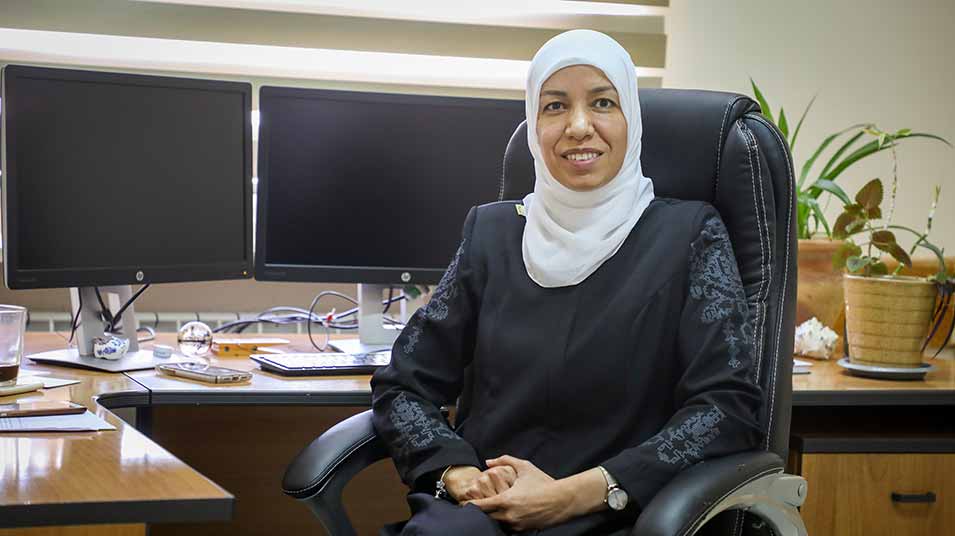For Niveen Abu-Rmeileh, world-renowned public health professor, research is Palestinian-focused, internationally driven
A recently released study on citation metrics has listed five Birzeit University researchers and professors as some of the most cited in their disciplines, further bolstering the faculty’s reputation as leaders in their respective fields and active participants in the production of knowledge locally and internationally.
In honor of the faculty members’ achievements, we are presenting a series exploring their research and academic interests and community-engagement efforts. In December, we began with an article on Dr. Abdullatif Husseini’s scholarly accomplishments and efforts to combat COVID-19 as part of the National Epidemiology Committee in Palestine.
Today, we are highlighting the career and research projects of Dr. Niveen Abu-Rmeileh, a professor of epidemiology and public health at Birzeit University who spent the better part of two decades studying non-communicable diseases, reproductive health, and information systems for health in Palestine.
Academic background and research interests
Abu-Rmeileh first stepped into Birzeit University in the late 1990s as a research assistant at the Institute of Community and Public Health. With a bachelor’s degree in medical laboratory sciences from Al-Quds University, Abu-Rmeileh worked as a research assistant at the institute, helping with the design and implementation of public health studies and research projects.
After a period of research work, Abu-Rmeileh joined the institute’s master’s program in public health, completing it in 2000 and then moving to Scotland to pursue a Ph.D. in statistical epidemiology at the University of Glasgow. Upon completing her Ph.D., Abu-Rmeileh returned to the Institute of Community and Public Health, where she led many research projects focused on the factors that play a key role in the spread of non-communicable diseases.
What makes Abu-Rmeileh’s research papers as penetrating and insightful as they are is her integrative approach to public health. She does not only present a quantitative analysis of the factors that lead to the rise or fall of non-communicable diseases in Palestine, but also investigates the social, economic, and political context in which these diseases spread or recede, thus offering a detailed, multi-faceted perspective through which decision-makers can take the best action to improve the community’s health and wellbeing.
As part of her varied research interests, Abu-Rmeileh has also investigated women’s reproductive health in Palestine, exploring the quality and accessibility of reproductive health services provided to women in urban centers as well as countryside areas.
With the increased reliance on communications technology in the delivery of public health services, Abu-Rmeileh has recently begun researching patient data governance and confidentiality in Palestinian health institutions, focusing on how data sharing can be improved to present local health authorities with the broadest perspective possible without affecting patients’ right to privacy.
Joint research locally and internationally
As a researcher trained and educated at the Institute of Community and Public Health, Abu-Rmeileh strongly believes in cooperation across all disciplines and specialties. Almost all the research teams that she was part of are multidisciplinary, with each member helping the team in their area of expertise.
Currently, Abu-Rmeileh is part of a team examining COVID-19 in Palestine and the region, with a paper describing the epidemiological characteristics of the disease in Palestine due for publication in the coming weeks.
A well-known researcher regionally and internationally, Abu-Rmeileh not only supports cooperative and multidisciplinary research but also works to apply research findings on the ground, cooperating with multiple healthcare agencies to set standards and procedures that follow the latest public health research in Palestine.
But Abu-Rmeileh warns that simply cooperating or following the latest public health research trends will not help improve health and wellbeing in Palestine. Such research, she stresses, must be designed and carried out under considerations of the local context and circumstances of the country as a whole and the locale where the research is set.







